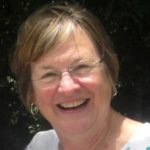“In the end, we will only conserve what we love, we will love only what we understand, and we will understand only what we are taught.” – Baba Dioum, 1968, Senegal
With the confidence of former Peace Corps volunteers and few skills, John Lewis and I decided to help preserve one of the world’s most bio-diverse gems in 1990 by purchasing a 1,000-acre forest on the Osa Peninsula in Costa Rica. There we built a 17-bungalow ecolodge with the help of our neighbors.
Our lodge, Lapa Rios, is now an acclaimed example of ecotourism in Costa Rica. Despite our naiveté and few formal guidelines, we established some goals: to buffer Corcovado National Park, conserve the pristine land overlooking the ocean, and work exclusively with our isolated community. We directed our program by constantly asking, “how will this decision impact the forest?”
We quickly learned that sustainability requires more than buying land. Everyone, from employees and neighbors, to visitors must be engaged, so we made sure our sustainability program was underpinned by education. During those early years we benefited from the encouragement of Rachel’s Network Member Jocelyn Sladen and her husband Bill, environmental leaders par excellence.
“Lapa Rios is our favorite retreat. The preserved ecosystem is right under your balcony and they do so much for the local community. It’s an amazing place.” – Jocelyn Sladen
Lapa Rios has helped drive many transformations in the region. From the local organic farms that supply our seasonal food and the new primary school built with our guidance and funding, to the artisans that use local products, a sustainability ethic pervades our supply chain and thus, our community.
What better place, then, to immerse and educate travelers? Our visitors certainly expect to see great wildlife at Lapa Rios—it’s one of most biodiverse spots in Central America—yet their fondest memories often come from interacting with our staff. Guests leave having learned to incorporate conservation and social involvement into their travels, and their daily lives.
Most nature/community-based lodges are family owned, values driven, and small in size and revenue. In order to ensure ecotourism can survive into the future, the owners of these lodges must plan for succession. It’s a process we ourselves started in 2001. How are we doing this?
First, we worked with CEDARENA—the national land trust lawyers—and The Nature Conservancy to gather baseline data for a 900-acre conservation easement. Then we signed a contract eliminating development in perpetuity. The easement title belongs to the tourism business, and allows community and guests exclusive access to preserved forest for scientific and educational purposes.
We then designed a 30-year Sustainable Master Plan with 35 Costa Rican stakeholders and Hitesh Mehta, an ecotourism architect. This Plan provides topographical maps for the “developable” remaining 100 acres, with guidance on timelines and revenue. We are also employing the help of Cayuga Sustainable Hospitality Management, a team aligned with Lapa Rios’ values. Cayuga has already improved our operations, skills development, and guest satisfaction. John and I are no longer required to be everywhere, all the time.
The motto of Lapa Rios is “No matter how you cut it, a rainforest left standing is worth more.” We hope that we’ve instilled this message in our small corner of Costa Rica and that the next owner will carry this vision into the future.




Karen…. Sorry to hear about John… He will be missed dearly…. Years ago when Kathy and I were there, John treated us great.. He was a great host… Steve Thompson